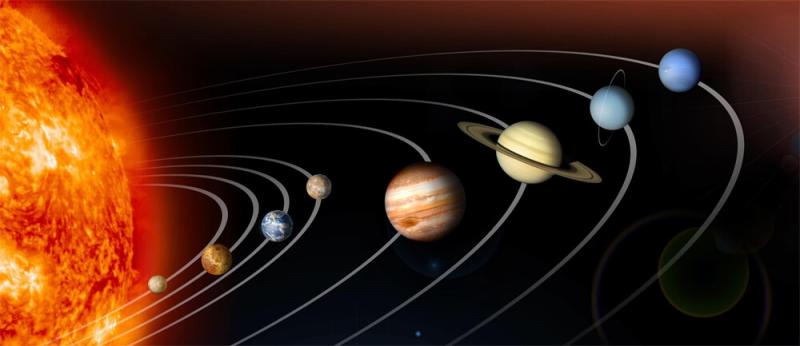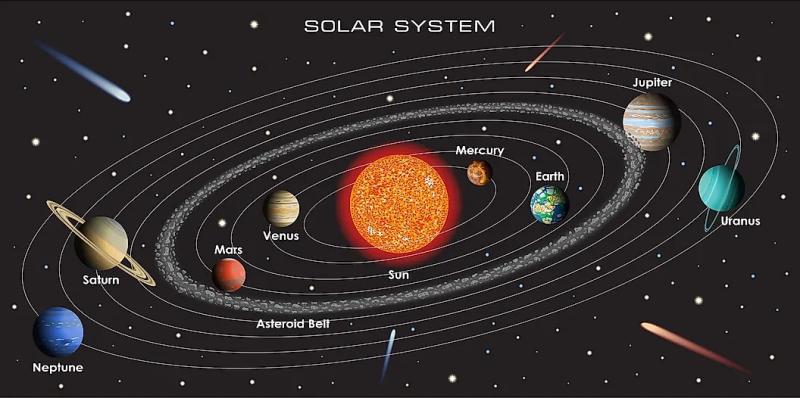
The idea of leaving our solar system and exploring the vast expanse of space is one that has fascinated humans for centuries. However, the reality is that we are currently unable to leave our solar system, and there are several reasons why this is the case.
1. Distance: The nearest star to our solar system, Proxima Centauri, is over four light-years away. This means that even if we were able to travel at the speed of light, it would still take us over four years to reach it. With our current technology, the fastest spacecraft we have sent out, the Parker Solar Probe, would take over 6,000 years to reach Proxima Centauri.
2. Fuel: In order to travel long distances through space, we need a lot of fuel. This presents a major challenge for interstellar travel, as we would need to carry a massive amount of fuel to power our spacecraft over such vast distances. This would make our spacecraft very heavy and difficult to launch into space.
3. Radiation: Space is full of radiation, including cosmic rays and solar wind, which can be harmful to humans and electronic equipment. As we travel further away from the protection of Earth's magnetic field, we would be exposed to higher levels of radiation, which would pose a serious risk to our health and the health of our equipment.
4. Life Support: In order to survive in space, we need to bring everything we need with us, including food, water, and oxygen. This requires a lot of resources and would make our spacecraft even heavier and more difficult to launch.
5. Time: Even if we were able to overcome all of these challenges, interstellar travel would still take a lot of time. The nearest star is over four light-years away, so even if we were able to travel at a significant fraction of the speed of light, it would still take us many years to get there.
6. Communication: As we travel further away from Earth, our communication with mission control would become more difficult. This would make it difficult to receive instructions, troubleshoot problems, and stay in contact with loved ones.
 7. Cost: Interstellar travel would be incredibly expensive, requiring a massive investment in technology, infrastructure, and resources. This would make it difficult to justify the cost, especially when there are so many other pressing issues that need our attention on Earth.
7. Cost: Interstellar travel would be incredibly expensive, requiring a massive investment in technology, infrastructure, and resources. This would make it difficult to justify the cost, especially when there are so many other pressing issues that need our attention on Earth.
8. Technical Limitations: Even if we could overcome all of these challenges, there are still technical limitations that would make interstellar travel difficult. For example, our spacecraft would need to be able to withstand the extreme temperatures, pressures, and radiation of space, and we would need to develop new propulsion systems that can achieve the speeds needed for interstellar travel.
9. Human Limitations: Humans are not designed to survive in the harsh environment of space. We require a specific range of conditions to survive, including a specific temperature range, atmospheric pressure, and access to food, water, and oxygen.
10. Sustainability: Even if we were able to develop the technology to leave our solar system and explore the galaxy, we would need to consider the sustainability of our actions. This would require us to ensure that we are not causing harm to other planets or ecosystems, and that we are using our resources in a responsible and sustainable way.
11. Ethics: As we explore the galaxy, we would need to consider the ethical implications of our actions. This would require us to consider the impact of our actions on other intelligent life forms, and to ensure that we are acting in a way that is respectful and responsible.
12. Priorities: Ultimately, the question of whether or not we should leave our solar system comes down to priorities. We have limited resources and must make choices about how we allocate those resources. While space exploration is an important endeavor, we must consider whether it is more important than other pressing issues on Earth, such as poverty, inequality, and climate change. It is important to prioritize our efforts and resources in a way that benefits the greatest number of people.

In conclusion, there are several reasons why we cannot currently leave our solar system. The distance, fuel requirements, radiation exposure, life support needs, time, communication challenges, cost, technical limitations, human limitations, sustainability concerns, ethical considerations, and priorities all make interstellar travel a daunting challenge. However, humans are resourceful and innovative, and we have made incredible strides in space exploration over the past century. With continued research and development, it is possible that we may one day be able to overcome these challenges and explore the galaxy beyond our solar system.











